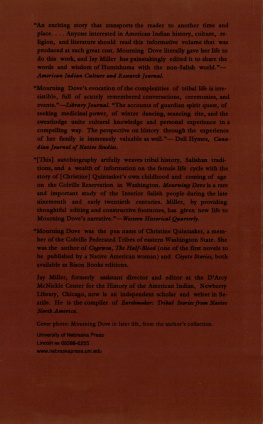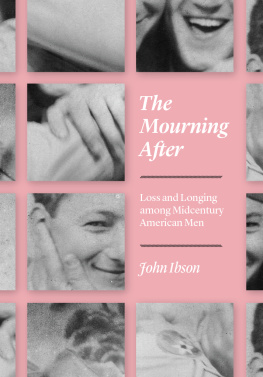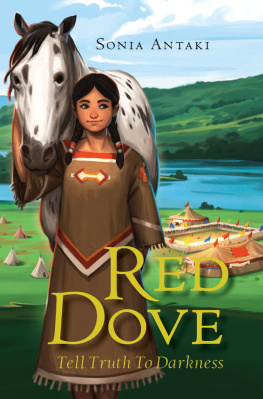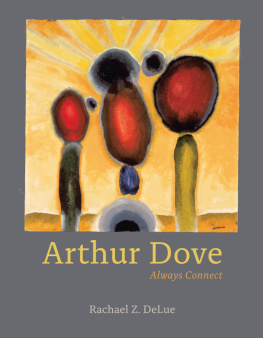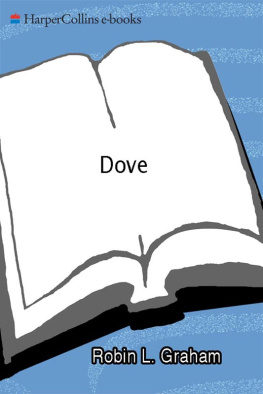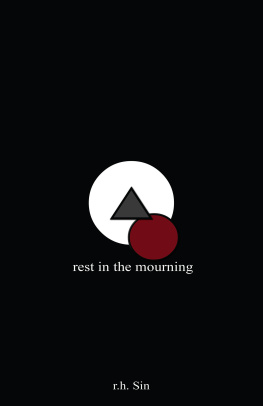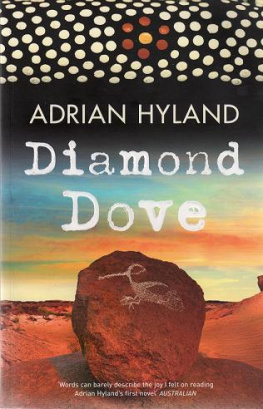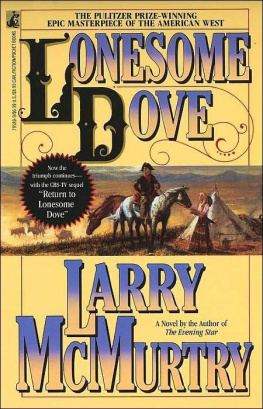Mourning Dove - Mourning Dove: A Salishan Autobiography
Here you can read online Mourning Dove - Mourning Dove: A Salishan Autobiography full text of the book (entire story) in english for free. Download pdf and epub, get meaning, cover and reviews about this ebook. year: 2014, publisher: Nebraska, genre: Non-fiction. Description of the work, (preface) as well as reviews are available. Best literature library LitArk.com created for fans of good reading and offers a wide selection of genres:
Romance novel
Science fiction
Adventure
Detective
Science
History
Home and family
Prose
Art
Politics
Computer
Non-fiction
Religion
Business
Children
Humor
Choose a favorite category and find really read worthwhile books. Enjoy immersion in the world of imagination, feel the emotions of the characters or learn something new for yourself, make an fascinating discovery.
- Book:Mourning Dove: A Salishan Autobiography
- Author:
- Publisher:Nebraska
- Genre:
- Year:2014
- Rating:4 / 5
- Favourites:Add to favourites
- Your mark:
- 80
- 1
- 2
- 3
- 4
- 5
Mourning Dove: A Salishan Autobiography: summary, description and annotation
We offer to read an annotation, description, summary or preface (depends on what the author of the book "Mourning Dove: A Salishan Autobiography" wrote himself). If you haven't found the necessary information about the book — write in the comments, we will try to find it.
An exciting story that transports the reader to another time and place. . . . Anyone interested in American Indian history, culture, religion, and literature should read this informative volume that was produced at such great cost. Mourning Dove literally gave her life to do this work, and Jay Miller has painstakingly edited it to share the words and wisdom of Humishuma with the non-Salish world.American Indian Culture and Research Journal
Mourning Dove: A Salishan Autobiography — read online for free the complete book (whole text) full work
Below is the text of the book, divided by pages. System saving the place of the last page read, allows you to conveniently read the book "Mourning Dove: A Salishan Autobiography" online for free, without having to search again every time where you left off. Put a bookmark, and you can go to the page where you finished reading at any time.
Font size:
Interval:
Bookmark:
Acknowledgments
This manuscript came to my attention five years after I began working with the confederated tribes of the Colville Reservation. For almost a decade now I have been learning from these elders, and their wonderful wisdom is unabated. Thanks to Mourning Dove, many new vistas have opened for us.
Among the Colvilles, help has come from so many quarters that I will not be able to thank everyone here. But I would like to single out Isabel Friedlander La Course Arcasa, Julianne Timentwa and her sons Jim and Leslie, the late Herman Friedlander and his wife, Maude, T. B. and Pearl Charlie, Emily Peone, Jerome Miller, Shirley Palmer, Suzanne Morgan, Lucy Covington, Andrew Joseph, Melvin La Course, Nettie Francis, Christine Sam, Nancy Judge, Laura Scoble, Agnes Nanamkin Friedlander, Matilde and Adam Bearcub, Sue Matt, and Mary Miller Marchand and family. Special thanks also go to the Fredin family: Adeline, Larry, Christine, and Laurie. Charles Quintasket and Mary Lemury provided kind and generous help, along with necessary corrections, as the elders of Mourning Doves family.
For help with technical or academic concerns, I am obligated to Dale Kinkade, Anthony Mattina, Donald Parman, Vi and Don Hilbert, Joanne Miller Hooker, Gary Gibbs, Glenn, Dot, Kether, and Keith Williams, Ann Schuh, Donna Steinburn, and the Chesnin-Bernsteins: Harry, Noah, Zachary, Sara, and Ann. Catherine Schrump and Alan Stay referred me to important citations. In Chicago, Mike, Esther, Ben, and Dan Lieber gave me a home. Others of my familiesMillers, Toulouses, and Dunnsprovided helpful insights into my work that they probably never imagined. C. B. Blue Clark deserves a special note of thanks for his many kindnesses and timely help with files from the National Archives. A. LaVonne Brown Ruoff has taught me much about the craft of editing.
My friends rallied to my aid during a brief visit to Seattle to locate important documents in May 1986. For their efforts, cars, and meals, I am most grateful.
For their earlier care and attention to the manuscript, my greatest appreciation goes to Erna Gunther, a friend of many years who did not live to see the work completed, and to Gerry Guie and her late husband, Dean, who stored the manuscript for fifty years.
Timely help was graciously provided by Gary Lundell at the University of Washington Archives, Joyce Justice at the Federal Archives and Records Center in Seattle, Sister Rita Bergimini at the Sisters of Providence Archives in West Seattle, and by the able staff, particularly Charles Cullen, Fred Hoxie, John Aubrey, Richard H. Brown, Ruth Hamilton, and Violet Brown, at the Newberry Library in Chicago, my haven both as a fellow and as editor/assistant director of the DArcy McNickle Center for the History of the American Indian. The American Philosophical Society kindly permitted the use of illustrations by Karneecher from their Boas collection. They do not, however, own the originals, and efforts to track them down or to find the artists relatives or heirs have been unsuccessful.
Appendix
Since this autobiography is not, in final form, a fair example of Mourning Doves own literary efforts, a draft of an article that, according to her own letters, pleased her is included: The Red Cross and the Okanogans. This is reprinted as written by Mourning Dove except for the editors clarification of spellings in brackets.
THE RED CROSS AND THE OKANOGANS
The Red Cross today has a far more significant meaning to the Indians of the Northwest than ever before. It is no longer a mere money making scheme of the white man, but in reality an institution of charity. The soldier of the trenches and prisoners of war have long known its worth, the Belgians, young and old have blessed it, but not until now, since the coming of the white man among us with his new ideals, have we from our hearts felt gratitude for his coming. The charitable efforts of the Red Cross has put us in touch with the unselfish side, with the true nature of the foreign brother who lives in our midst. It is an historic fact that the Indian in general entertains no love for the higher civilization, and that he is ready to grasp at the most forlorn hope held out for the recovery of his halcyon tribal days. Perhaps this Government will never know the full extent of the German propaganda that was spread among the different tribes, how the old and ignorant were excited by the promises made them by mercenaries of the Baby Killers, how their vast hunting domains would be returned to them if only the arms of the Kaiser prevailed. To this end the Red man should join cause with his overseas friend. Many disputes arose among the tribes. The old and uneducated sympathized with the Hun, while the younger and more enlightened counseled peace and continued allegiance to our own country. It is to these half-educated tribesmen that the nation owes a debt of gratitude for fidelity mentained [maintained]. The splendid patriotism of the thousands of our best young men who joined in the world fight for democracy, attests the true steel of the Red race, hampered though it is by undue Governmental restrictions. And now the Red Cross has effected a change of heart among many of our fathers and mothers, and we younger Indians feel a joy in the closer union of the two races, the brotherly love which peace on earth should bring to all peoples.
Marcus, a little town on the Columbia River, was the first to come to the rescue of its Indian population suffering with the dreaded Flu. Assisted by the Deputy Sheriff, John Lane, the Red Cross reopened the old hospital which was proffered free by its owner, a physician residing at Newport. Liberal donations poured in and commodious quarters were provided for the stricken Indians, who were wholy unable to cope with the strange malady. Mr. Lane found several homes with corpses lying in the same room where the remaining living members were too weak and emaciated to bury their dead or care for themselves. Using pursuasive methods, with that generosity of heart for which he is noted, he carried these poor invalids in his own car to the Sick House of the white man. In some cases the aged and superstitious could not be induced to leave their squallid homes, but remained to fight fate with that stoic indiffernce to death for which our race is renowned. To these, such aid and comport was rendered as possible under the conditions.
The Indian population of Kelly Hill and adjacent valley would no doubt have been wiped out by the epidemic had it not been for the Red Cross. The lady members of this humane body devoted themselves to the dusky patients who filled the wards of the hospital. Day and night they relaxed not their vigils, but cared for the sick with all the tender patience of the true mother and sister. The simple minded recipients at length understood and appreciated this care and attention. Dr. Parker donated his services and his wife and others kept close watch over the afflicted. One boy in particular, an only lad, the sole comfort and aid of his aged parents, came down to deaths door, but was saved by the experienced nursing of the Mother Superior of Ward Mission, who came daily until the danger point was passed. Father Schyler of the same Mission visited the hospital whenever called, sometimes on foot and untiring. The Catholic Indians wanted to be right with the white mans God before leaving for the Happy Hunting Grounds, with its visions of wild freedom which finds place in the mind of every tribesman, however Christianized.
Dr. Lane, in company with Dr. Parker, went down to the South half of the Colville Reservation, visiting all the sick and arrousing the Red Cross spirit of Enchelium. Aided by the Indian Agend [Agent], they partitioned the dance hall into wards, where many lives were saved to the tribes. The Indians were cared for, either by the Red Cross or the Indian Agency, as far North as the international boundary line and we feel that we are fortunate in having a place in this great republic. In the upper part of the reserve, about Oroville, there were no deaths from the Flu; but just across the boundary, where lies Smilkameen, Penticton and Inakmeep [Inkameep] reserves, the grim reaper harvested unstaid [unstayed]. Canada, renowned for her generosity and wisdom in her management of Indian affairs, rendered no aid. War-worn and exhausted, with her thousands of maimed and health-ruined soldier boys to care for, the Government seemed powerless or inert to the condition of the tribesmen, and the suffering and mortality was/has been appalling. Many pathetis [pathetic] incidents could be narrated. Chief Antoin Nachumchin lay ill in the same room where his younger brother was dying from the dreaded scourge, tuburculosis. It devolved on a young sister to care for the two brothers, in addition to the necessary work both inside and outdoors. One day the girl spoke of feeling unwell and Antoine warned her not to leave the warmth of the house. But fuel must be had. She went out, gathered wood and began chopping it. Soon the sound of the axe ceased. Antoine arose from his fevered couch and went out to find her lying unconscious by the little armfull of wood which she had succeeded in cutting. The brother carried her into the house, and a half hour later, her spirit fled. Her teeth had burst in the aweful agony of death. Despite such suffering, this devoted sister had not to the last atom of her strength desisted from ministering to the wants and comfort of her sticken brothers. The patience of the Indian woman endures without murmur or complaint even unto death. Can greater love and fidelity be found in any race?
Next pageFont size:
Interval:
Bookmark:
Similar books «Mourning Dove: A Salishan Autobiography»
Look at similar books to Mourning Dove: A Salishan Autobiography. We have selected literature similar in name and meaning in the hope of providing readers with more options to find new, interesting, not yet read works.
Discussion, reviews of the book Mourning Dove: A Salishan Autobiography and just readers' own opinions. Leave your comments, write what you think about the work, its meaning or the main characters. Specify what exactly you liked and what you didn't like, and why you think so.

